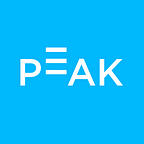Anxious or achy? The Antidote Might Be on Your iPod
After a long day, many of us slide in our headphones to unwind. When we’re tired, music can re-energize us for the tasks ahead. When we’re bored, it can relieve the boredom, and when we’re having trouble sleeping, it can help us hit the hay.
Listening to music can make us feel better when we’re going through mental and physical pain — -whether it’s from everyday stress or serious medical procedures.
It’s been shown many times that music can lessen our stress after we’re exposed to stress-inducing tasks in a laboratory, but it turns out that music can also help us cope with stressors outside of the lab.
In one study of a group of children who were undergoing a spinal tap procedure, half were randomly assigned to listen to music they enjoyed on an iPod, while the other half received the procedure without music. The children who listened to music reported feeling significantly less fear and anxiety during the treatment.
Another study conducted with patients who were about to undergo surgery found that listening to music was as effective in reducing anxiety as taking anti-anxiety medications, like Valium and Xanax.
Music has also been found to have analgesic, or pain-relieving, qualities. Researchers found that music therapy reduced the frequency of migraine headaches in a group of chronic migraine patients, as well as helped them control their pain when they did experience a headache. It’s also been shown to decrease pain associated with fibromyalgia, advanced cancer, and even labour pains.
So how does music create these drug-like effects in nervous patients or headache sufferers?
Well, for one, listening to music is distracting. The pleasant rhythms and positive emotional experience can keep our focus away from bodily signals of pain or anxiety.
Next, Daniel J. Levitin and researchers found, through fMRI studies, that listening to music activated a cascade of brain regions, including the mesolimbic system and nucleus accumbens, which are involved in arousal and pleasure, as well as the transmission of opioids (natural painkillers) and the production of dopamine. Increased dopamine levels are thought to be associated with a positive mood.
Does it matter what type of music you listen to? There’s no consensus on the most relaxing music (here, or here), though one study posits that classical music or music that the listener selects is more relaxing than heavy metal.
Music can do more than just make your ears happy — it can help your body and mind, too. So if you’re looking for a way to ease your nerves or soothe cramps, pop in your headphones and give your favorite song a play.
Peak is available from the Google Play Store and Apple App Store.
